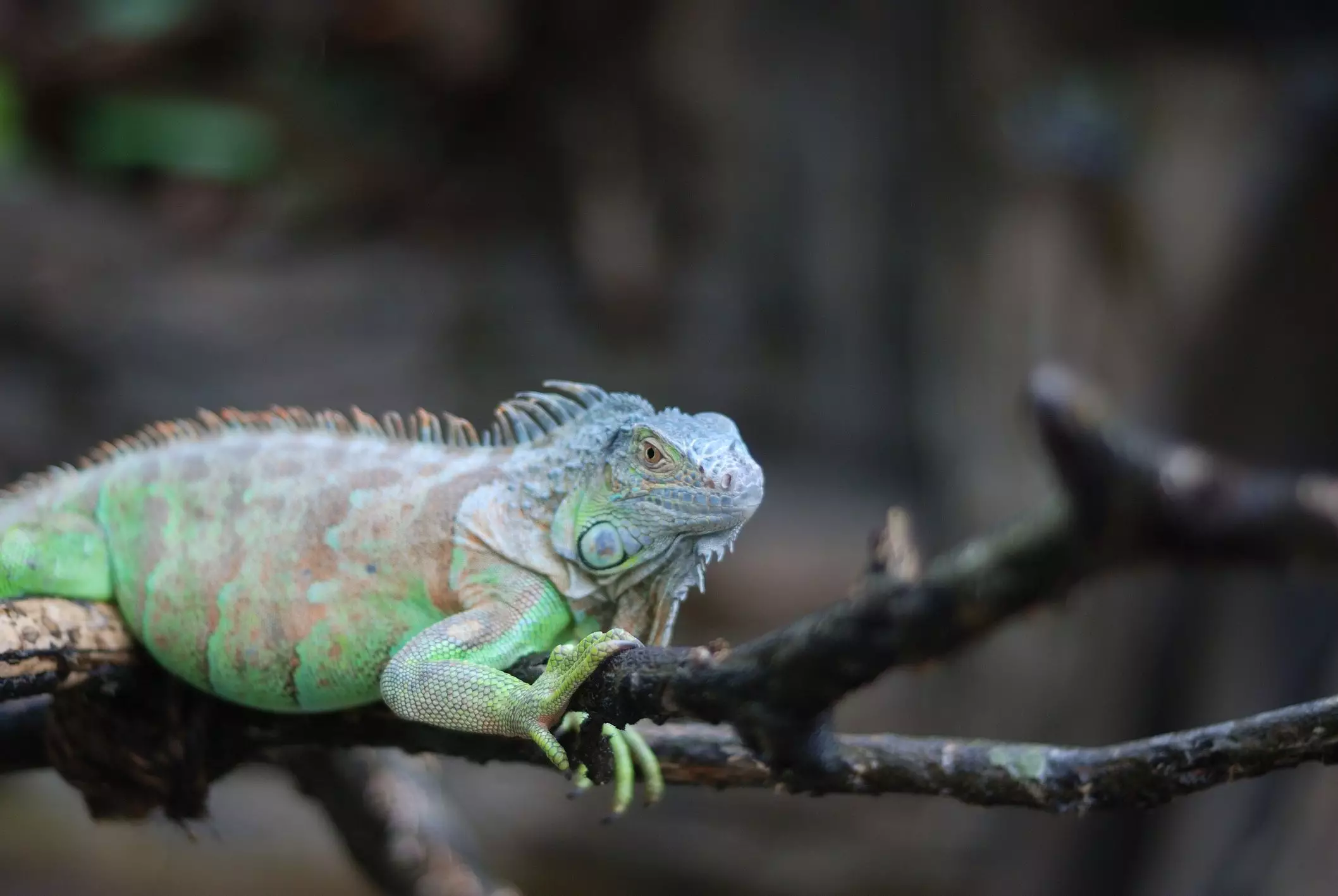Iguanas have surged in popularity as exotic pets, attracting reptile enthusiasts and casual pet owners alike. Their vibrant colors and unique personalities present an alluring option for those seeking lively companions. Native to Central and South America, iguanas are not just ordinary lizards; they embody a commitment that requires ample care, specific living conditions, and a nuanced understanding of their needs. However, the complexities of raising iguanas often go underappreciated, leading to regrettable decisions among new owners.
One of the most striking aspects of iguanas is their potential size. Adult iguanas can reach weights of up to 20 pounds and lengths approaching 7 feet, including their lengthy tails. This dramatic growth often comes as a surprise to prospective owners, especially those who may envision a small pet that remains manageable in size. Additionally, iguanas can live for 10 to 12 years in captivity, with some living as long as 20 years. This longevity underscores the necessity for long-term commitment, as owners need to be prepared for a significant portion of their lives devoted to care, interaction, and attention.
Developing a bond with an iguana is a formidable challenge. Unlike domesticated cats and dogs, iguanas are not naturally inclined to relish human interaction. They can exhibit defensive behaviors, such as biting or scratching if they perceive a threat. Regular handling is crucial for taming; however, for many, the task can prove daunting, particularly if the iguana resists contact or displays signs of aggression. For instance, while young iguanas are often lively and portable, adults can become lethargic if they feel secure, but their sheer physical power can still pose risks. It’s essential for owners to approach handling with patience and respect to cultivate trust over time.
Creating an appropriate living space for your iguana is non-negotiable. Many typical pet enclosures simply do not suffice, as iguanas require vast areas to roam, climb, and engage physically with their environments. An adequately sized enclosure should be no smaller than 12 feet long, 6 feet wide, and 8 feet tall, enhancing their natural instincts to climb and bask. Owners often resort to crafting custom habitats, outfitted with branches, ramps, and shelves that simulate a natural tree-dwelling environment. Regular maintenance of this space is essential to prevent health issues; waste should be cleared daily, and thorough cleanings scheduled weekly.
Nutritional needs are paramount for an iguana’s health. These reptiles predominantly consume a herbivorous diet consisting mainly of leafy greens and vegetables. Unlike some reptiles that thrive on protein-heavy diets, iguanas should avoid animal protein entirely, as it can lead to severe health complications, including kidney failure. Owners should continuously provide fresh food while adhering to guidelines from veterinarians on portion sizes. It’s critical to prepare food in small, manageable pieces, as iguanas swallow their meals whole without chewing.
Pet iguanas can carry salmonella, a bacteria that poses health risks to humans. Owners must practice strict hygiene by washing hands thoroughly before and after handling their reptiles, especially in households with children or immune-compromised individuals. The presence of health issues, including kidney diseases due to dehydration or metabolic bone diseases caused by calcium deficiencies, serves as a reminder that careful monitoring, veterinary consultations, and effective disease prevention strategies are essential for the well-being of iguanas.
Owning an iguana can be a rewarding endeavor that fosters a deep connection between pet and owner. However, it requires a commitment encompassing adequate housing, nutrition, healthcare, and handling. Potential iguana owners should consider their ability to meet the unique needs of these reptiles before making a decision. It is advisable to consult with exotic animal veterinarians and become acquainted with local regulations regarding iguana ownership. By doing so, they can ensure not only the health of their pet but also harmony in their household, ultimately achieving fulfillment in their role as responsible iguana guardians.

